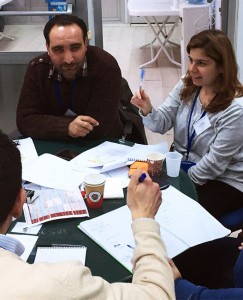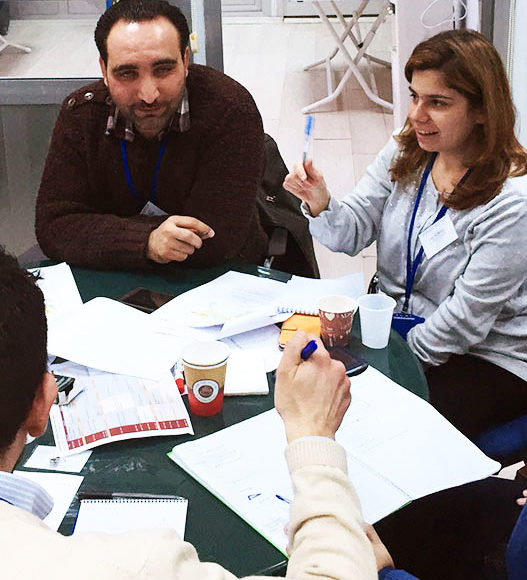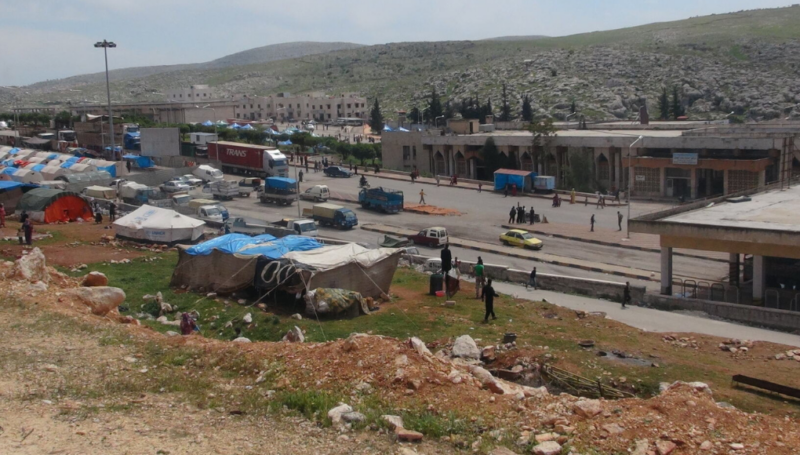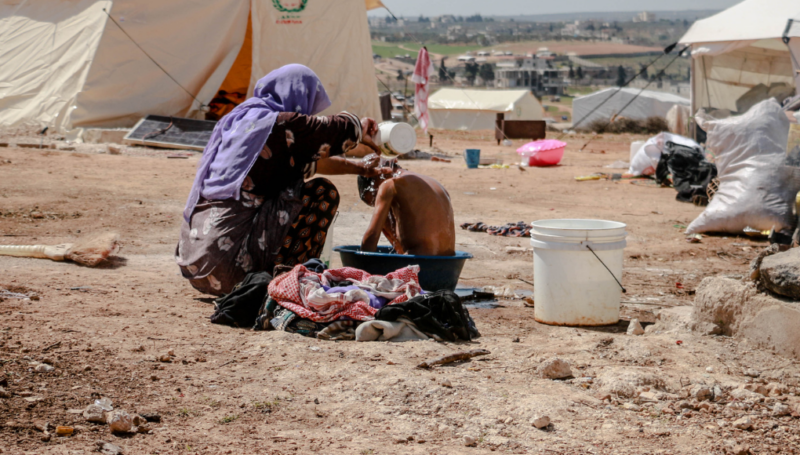
Last week, REACH carried out a Comprehensive Training on Needs Assessment in Gaziantep, Turkey, in partnership with the United Nations Office for the Coordination of Humanitarian Affairs (OCHA) and the Syria Needs Analysis Project (SNAP). The training was attended by 35 participants from 30 different organizations, in order to develop the skills of assessment stakeholders, build the capacity of staff trainers in different organizations operating inside Syria, and broaden the understanding of humanitarian assessments among a wide range of participating stakeholders. The training was facilitated by an experienced team from REACH, SNAP and OCHA, many of whom had travelled to the training from regional and global offices.
The week-long training provided a broad overview of the assessment and analysis process and included sessions the Humanitarian Reform and Humanitarian Cycle, primary data collection, data analysis, assessment coordination, and multi-sectoral assessments involving a wide range of stakeholders. Presentations were supported by practical exercises, in which the participants were able to draw on their own experiences and expertise, and practise using tools and technology such as smartphone surveys for data collection. Many participants had taken part in the Syria Multi-Sectoral Needs Assessment in 2014, and could share their views on the challenges of implementing such a large scale coordinated assessment, where humanitarian access was limited.
This training was a coordinated effort by the co-chairs and technical working group of the Syria Assessment Monitoring Initiative (SAMI) in Turkey, and was also supported by the Office of U.S. Foreign Disaster Assistance (OFDA) in the region. In the coming weeks, OCHA will be organising an additional follow-up training for participants interested in using the Kobo tool for mobile data collection.
Read the Lessons Learned from Syria Multi-Sectoral Needs Assessment, February 2015
For further information on humanitarian assessment training, please contact [email protected]









